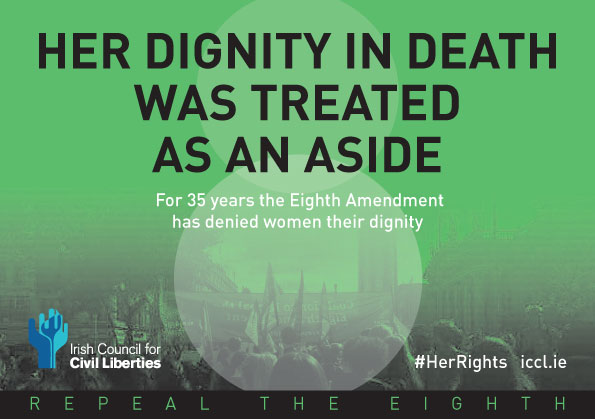Article 1 of the EU Charter of Fundamental Rights states that:
‘Human dignity is inviolable. It must be respected and protected.’
The Irish Constitution is also based on the notion of ‘the dignity and freedom of the individual’.
Similarly, the Universal Declaration of Human Rights is founded on the principle of the ‘dignity and worth of the human person’.
Case in Focus: PP v HSE
In December 2014, the body of a woman who had died was kept artificially alive for over three weeks because she was 15 weeks pregnant. This was despite the wishes of her family and the trauma caused to them, despite the treatment’s ‘devastating’ effects on the woman’s body, and despite numerous doctors agreeing that there were no medically or ethically based reasons for such treatment.
Medical staff told the woman’s father that ‘for legal reasons, they felt constrained to put his daughter on life-support because her unborn child still had a heart beat.’
As time went on, the woman’s two young children could no longer recognise her owing to the huge amount of medical intervention needed to sustain the woman’s maternal organs. The treatment was only discontinued after the woman’s father petitioned the High Court.
Mairéad Enright, who observed the case in court, reported that ‘discussion of the limits of the obligation to preserve foetal life is located entirely in the foetus’ prospects for survival, with the woman’s dignity as an aside.’
Ultimately, the High Court ruled that:
‘To maintain and continue the present somatic support for the mother would deprive her of dignity in death and subject her father, her partner and her young children to unimaginable distress in a futile exercise which commenced only because of fears held by treating medical specialists of potential legal consequences.’

